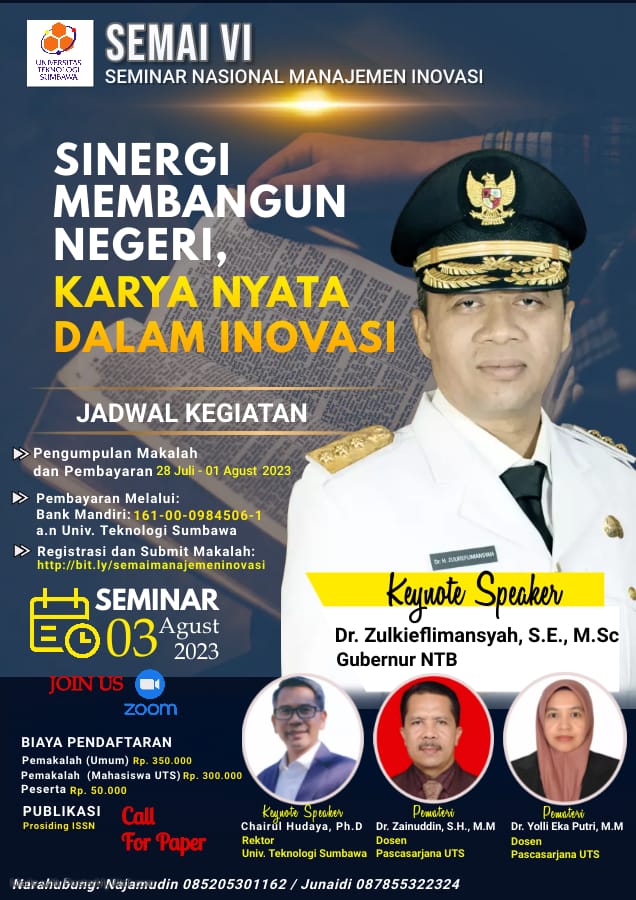PENGEMBANGAN TEACHING FACTORY DI SMK SEBAGAI PENOPANG PERTUMBUHAN INDUSTRI KECIL MENENGAH NUSA TENGGARA BARAT
Keywords:
Teaching Factory, SMK and IKM (Small and Medium Industry)Abstract
Vocational high schools that function as professional training institutions are expected
to equip graduates with the knowledge and skills to be accepted into the world of
work. To achieve this, vocational high schools need to develop a teaching factory
learning model that is oriented towards industrial production. Teaching factory is one
of the appropriate learning methods in vocational high schools to improve students'
skills through a combination of theoretical and practical learning.
This study uses qualitative research that focuses on a process, event, or development
where the materials or data collected are in the form of qualitative statements whose
research results are not to be used as generalizations. While the approach uses
descriptive analytic
The results of this study can show how teaching factory learning can create a learning
environment for students to gain experience in industrial work practices, make
products, develop a sense of responsibility, accountability, behavior, knowledge and
skills so as to bridge the competency gap between industry needs and the knowledge
acquired at school. The competency standards developed in the teaching factory are product-oriented knowledge and skills to meet industry needs so that graduates of
vocational high schools are ready to face the demands of employment and can
support the growth of IKM.
From the results of this study it can be concluded that Teaching Factory Development
in Vocational High Schools can produce products that function as media in delivering
competence to students, training students' independence so that they are able to
collaborate and students are not only equipped with theory but students are also
directly provided with practice.

